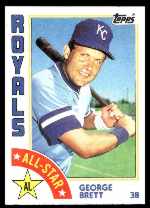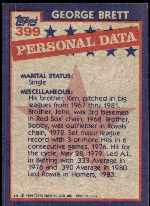1975 Topps #194 '1956 MVPs' - Mickey Mantle/Don Newcombe (Yankees/Dodgers)


Please wander around the website for more info, prices, values & images
on vintage baseball, football, basketball, hockey, sport and non-sports cards.


1984 Topps Baseball Cards |

1975 O-Pee-Chee (OPC) Baseball |

Die-Cut A special card that differs from a basic card by "Die-Cutting", cutting away portions of the card to create a special design. Most are serially numbered & limited.
Error Card Baseball card history is filled with error cards, many of them very interesting. Hank Aaron is on 2 of my favorite error cards. Aaron's 1956 Topps card action photo shows Aaron sliding home but it is actually Willie Mays not Aaron. Topps again goofed on Aaron's 1957 "reversed negative" card showing Aaron batting left-handed.
"Error Cards" are usually found early in print runs and often corrected. When this correction happens a VARIATION is created. Some variations are extremely interesting and very expensive while others are totally boring and you wonder why they were even made.
Extended Set Also frequently called Update Set or
Traded Set.
They are sets issued after the original release to update the regular set
with new and traded players.
Facsimile Autograph is an autograph printed on a card to show what the player's actual signature looks like. They are not "real" autographs.
Factory Set are complete sets usually in special boxes produced by the manufacturer. "Hand-Collated Sets" are sets collectors have put together card by card from packs.
